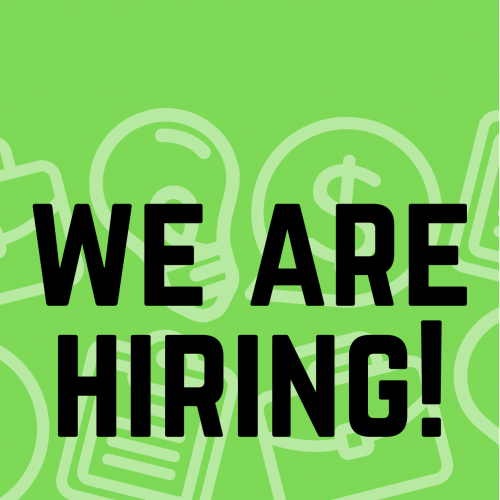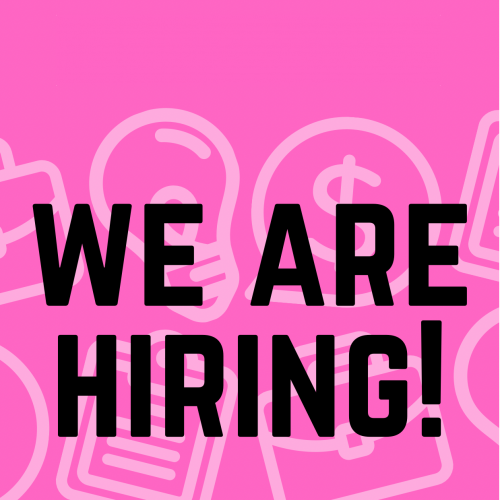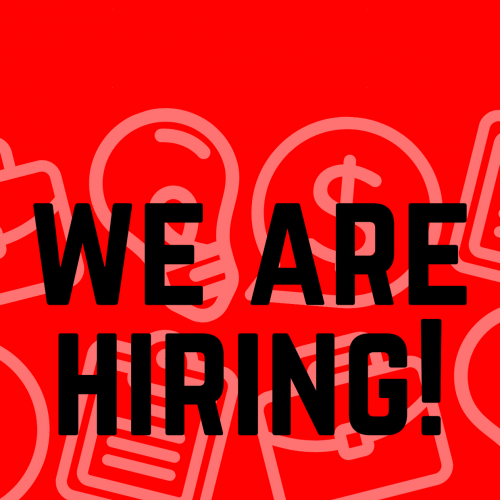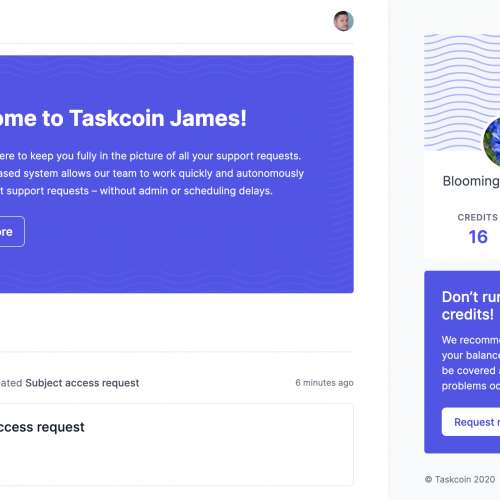Last week we held a blockchain themed hacknight in partnership with Venturefest 2017, sponsored by Invest Bristol and Bath. We’ve seen loads of amazing applications of blockchain recently – from self-managing cars to blockchain-based novels – so we wanted to explore how we can use blockchain to create a positive impact on cities in the future.
We were joined by 35 developers, designers, students and creatives from Bristol and the South-West.
We kicked off with some homemade chilli and cake from Geekfeeder. After food and a short presentation from resident developer Jaycee, the hacking commenced.
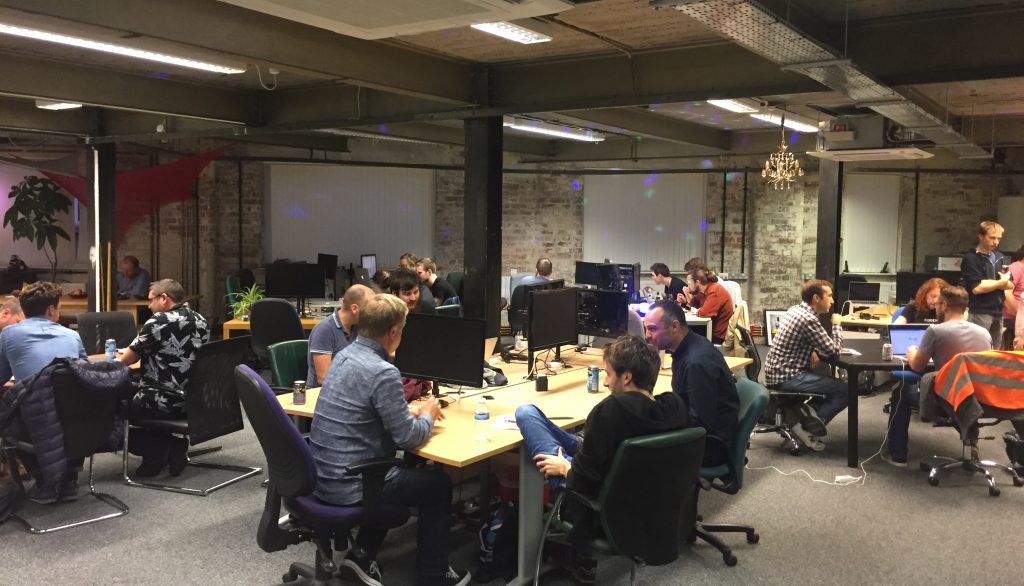
The hacks
The quality of hacks was outstanding and once again, we were surprised and impressed with the ability of the community to create amazing projects in just three hours. Every team engaged with the theme differently and the result was a number of projects that could genuinely inspire the future of the cities we live in.
Most of the teams looked to leverage smart contracts on Ethereum due to the ability to put rules in places for the distribution of funds. The scope of ideas was impressive and the level of understanding around blockchain and the benefits it offers was clearly visible. Due to the time limits, most teams provided provisional designs and ideas for their implementation, but a few teams managed to get the basics of smart contracts in place, mainly using the Truffle and OpenZeppelin frameworks.
Before we get to the winners, here’s a few honourable mentions…
Property Stepladder
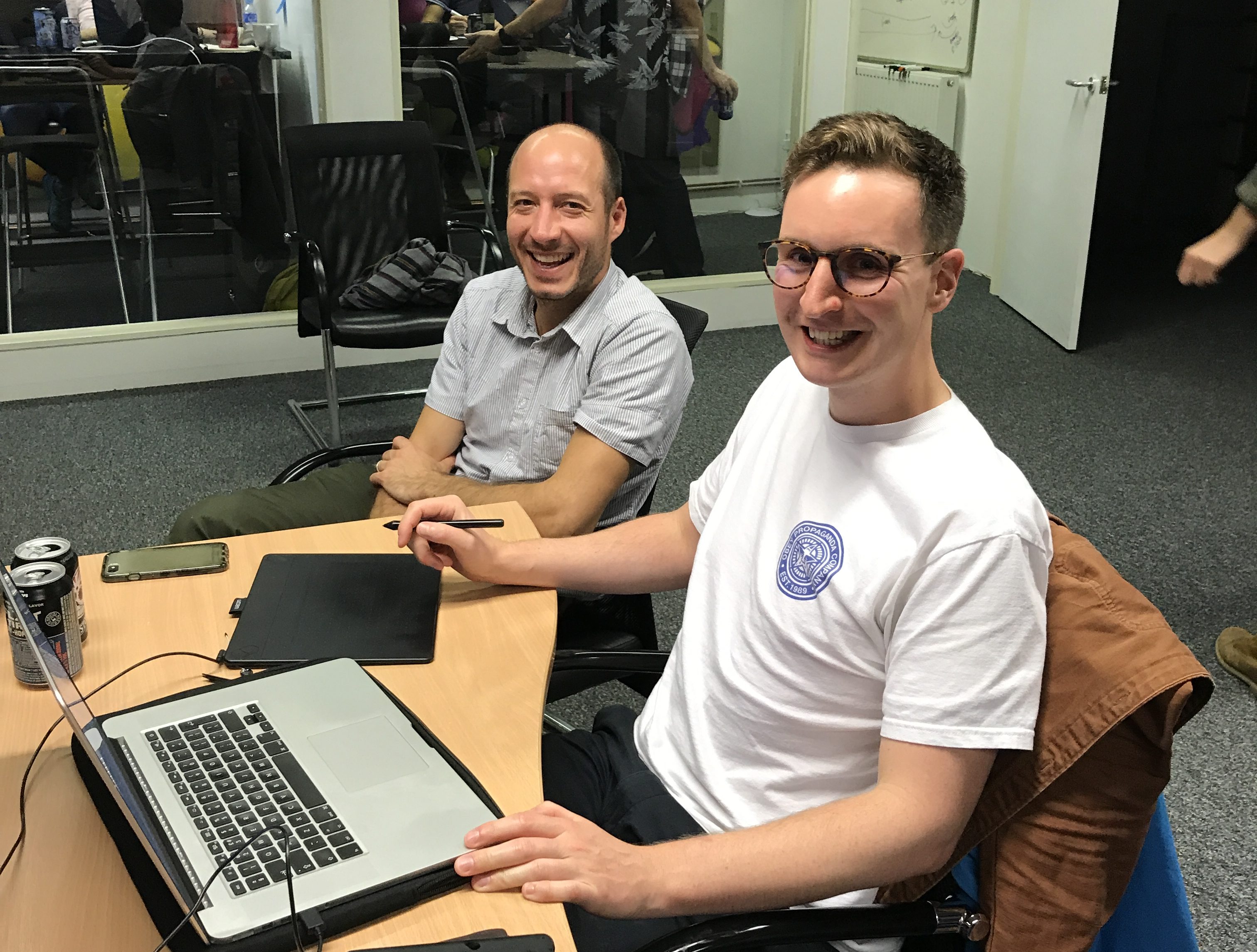
Co-founders of graphic design and branding agency Polleni, Rog and Neil, explored the issue of affordable housing.
Property stepladder uses blockchain technology to give people who are struggling the chance to get on the property ladder by buying an equity stake of a council house or building. They’re then able to build up a portfolio to earn enough money to buy a home outright. You can find their prototype here.
Broken Bristol on the Block
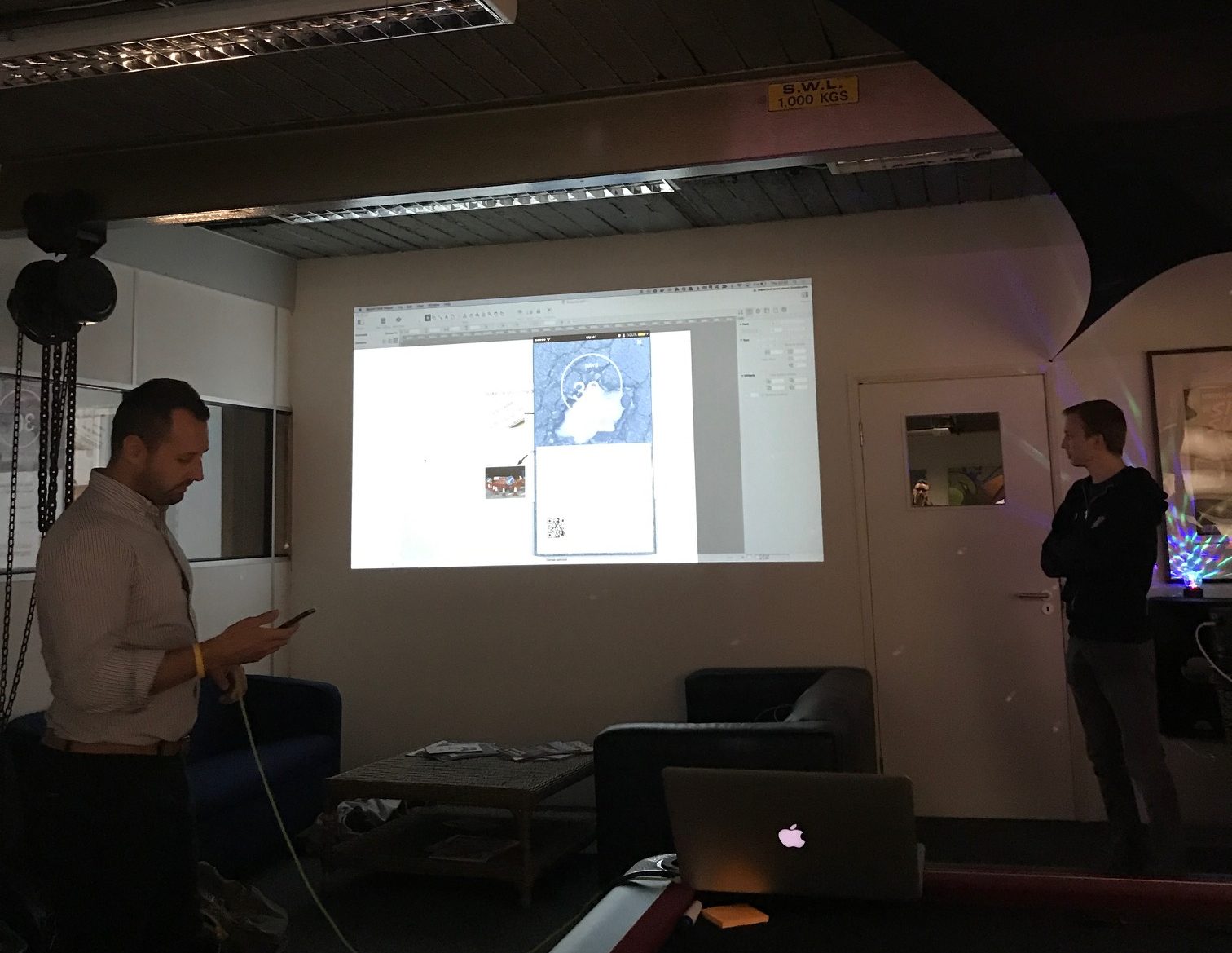
Simpleweb CTO, Tom, and lead designer at Nationwide Innovation Lab, Tim, prototyped an app that uses smart contracts to allow constituents to decide how their council tax is spent.
With Broken Bristol on the Block, you can take a photo of an issue you want to fix or improve (potholes, cycle lanes, litter etc) and assign a portion of your council tax to fund it. If enough money is contributed to the issue, the council fixes it.
You can find their working prototype here.
InstantTax
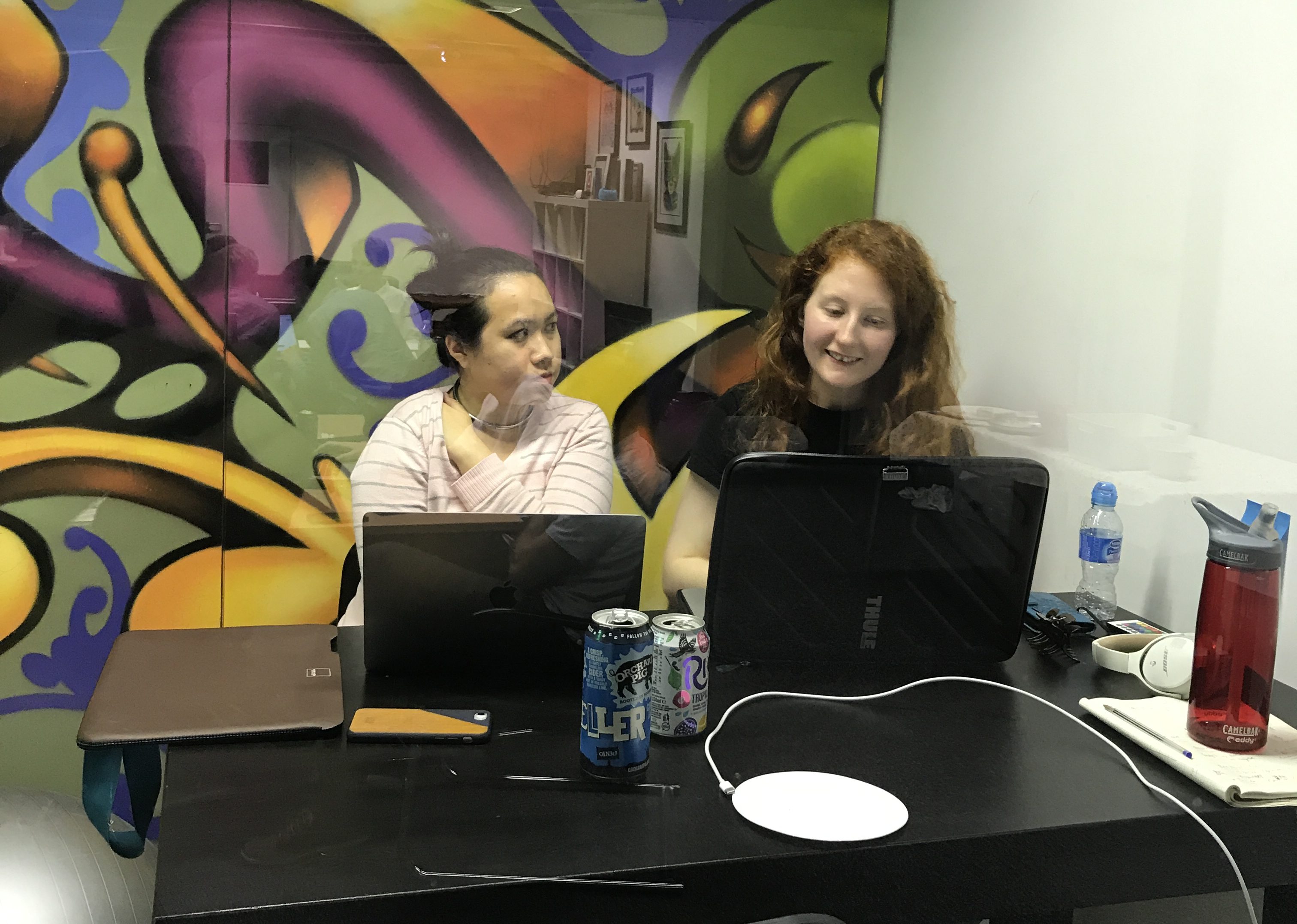
Instant Tax – created by developers Jaycee and Caroline – acts as a middleman for tax and takes the stress out of filing tax returns.
Whenever a customer pays a business, they pay with cryptocurrency via a dApp. For every transaction that takes place, Instant Tax takes out the tax that is due (and a small fee) for that particular earning into their own wallet.
The proof of tax payment is then written on the blockchain and tax is automatically paid to HMRC when its due.
Businesses then have peace of mind that their tax has been paid, meaning no filing or form filling. Businesses are also able track their earnings with the Instant Tax dashboard, including a list of payments and the tax paid for by each earning or transaction.
You can find the repo of the build here.
Big Smart Contracts for Little Things
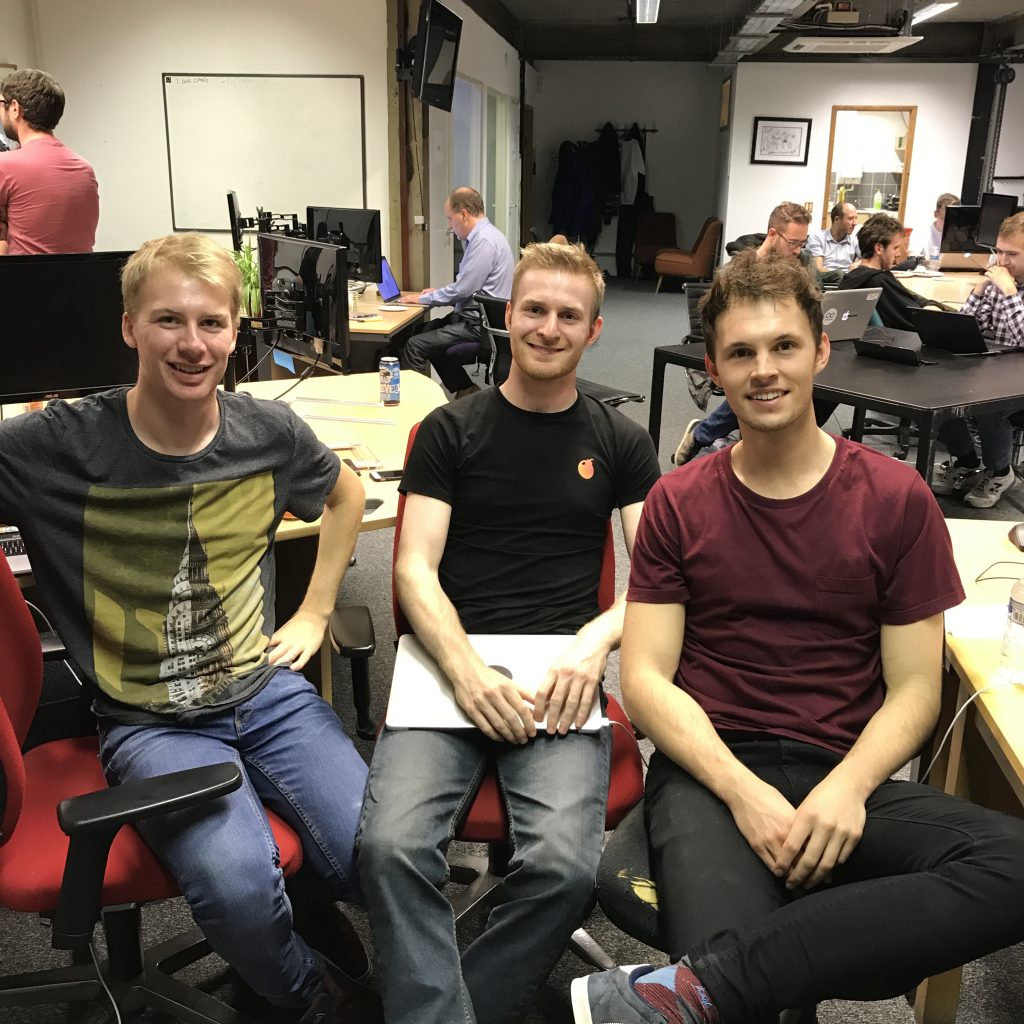
University of Bristol students Mike, Ben and Rory came up with a smart contract messenger bot for assigning tasks.
The idea is to create mini contracts for mini tasks, like doing the laundry or taking the bins out.
The messenger bot, which can be accessed in Slack, WhatsApp, and Facebook Messenger, creates a mini smart contract once a task is set. The contract pops up in the messenger and the reward is paid in cryptocurrency.
The smart contract ensures that if one party fails to do the task set, they don’t receive the reward. For example if the person that was set a task states they’ve completed it (but hasn’t really), the smart contract confirms with the person who set the task, before releasing the reward or self-executing. This makes sure the contract is validated ensuring both parties are happy.
Now onto the winners!
The winners
3rd Place – Carban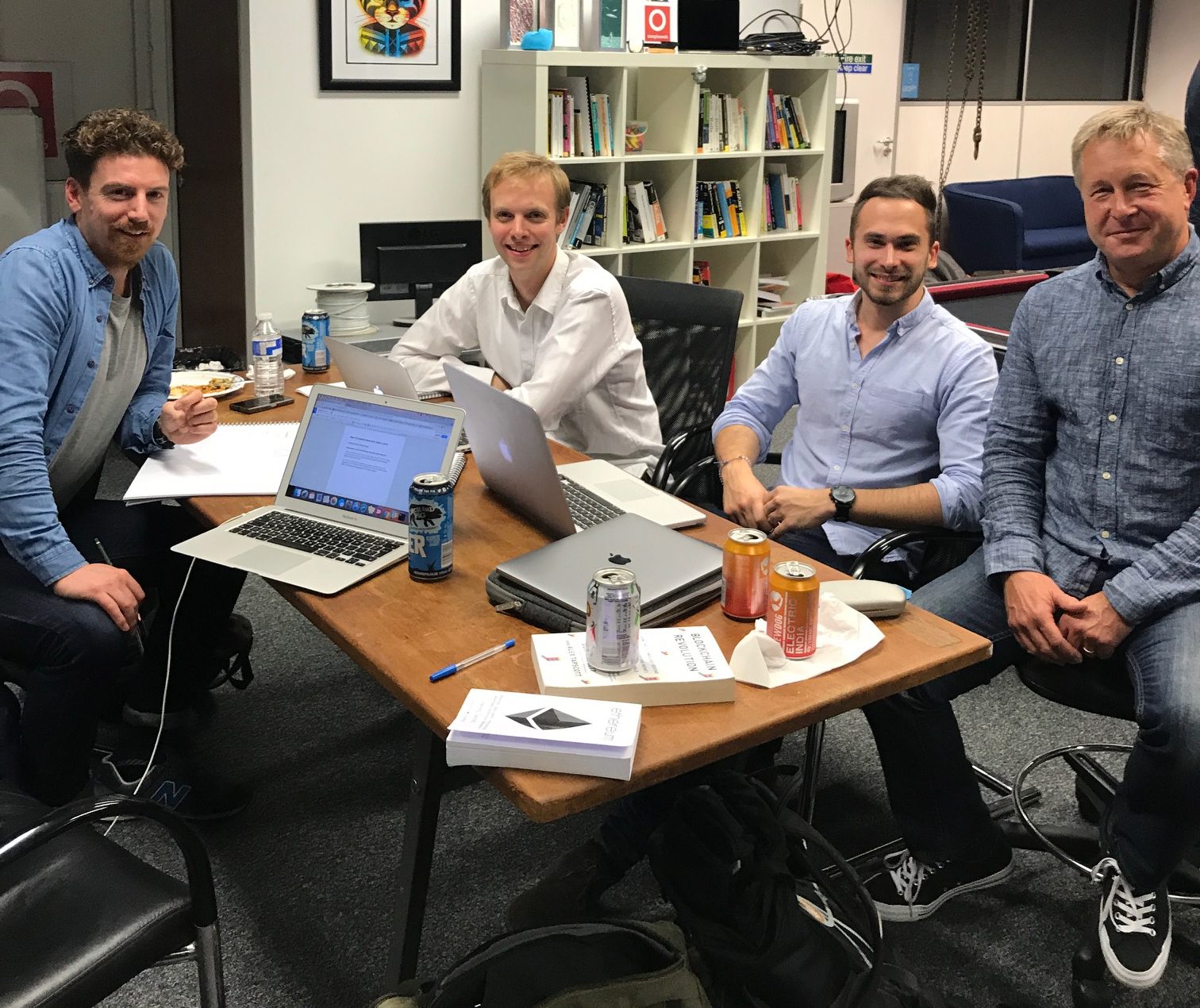
Carban is the brainchild of Engineering Mathematics PhD student Gabor, business dev Karl, tech mentor Laurie and new Simpleweb developer Henry.
Carban incentivises people to take greener journeys by offering money back on your road tax.
With Carban, citizens get an allocation of carbon credits, which they can either spend on driving or taking public transport, or earn on carbon-free alternatives like walking. The rate at which you spend is based on vehicle type, emissions, and also to do with the route (eg higher rate if you go through a congestion charge zone).
The team envisaged a dApp that would integrate with Google Maps to offer different routes or modes of transport that would either mean lower or higher carbon emissions. They imagined in the future that this could eventually replace road tax and also allow people to trade their carbon credits for other currencies.
2nd Place – LL Coin J

UWE students Bryan, Jake and Alex used the blockchain to improve loyalty schemes for independent businesses.
LL Coin J lets local, independent businesses accept loyalty rewards from other businesses of their choosing to encourage local, independent spending.
The idea was to create a generic smart contract (LLCoinJ). Businesses who wanted to be involved would create their own contract extending the LLCoinJ one. This allows the business to specify the terms of loyalty with the user and set which other businesses they would like to share loyalty with.
The team showed a local blockchain simulation and wrote a Truffle app to demo how the idea would work.
1st Place – Karmaland
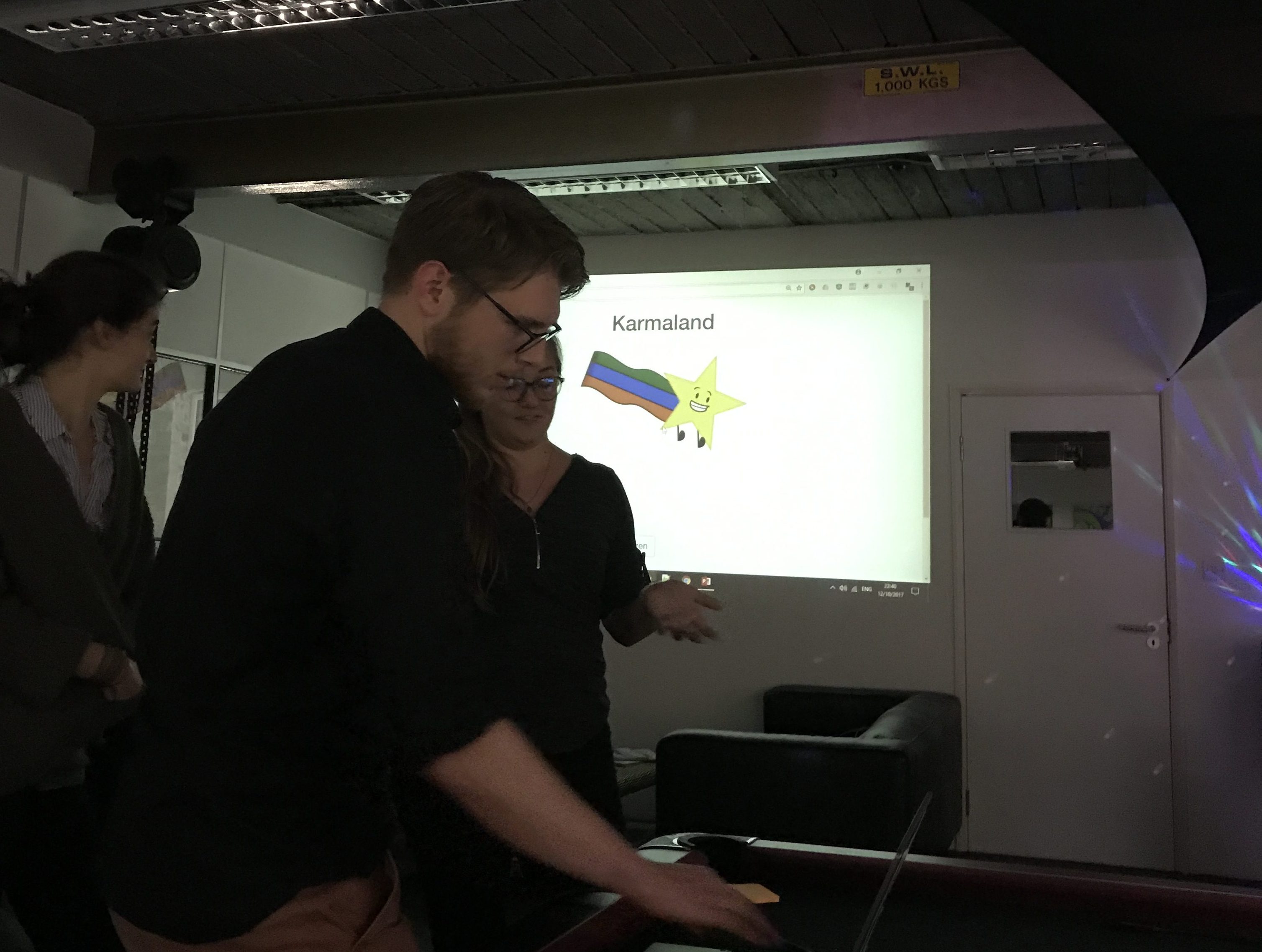
Ross, Anne-Claire and Orsolya
Created by students from the University of Bristol, Ross, Anne-Clair and Orsolya, Karmaland offers people greater power in shaping their cities based on how they choose to help their fellow citizens. Karmaland aims to make this as fair and democratic as possible through the use of virtual ‘karma’.
Each year, city councils assign virtual karma to their citizens who can pass that on to others as a reward for good deeds like litter-picking or involvement with charitable groups. The idea is that local councils hold votes on local issues (potholes that need filling, new initiatives to start) and citizens can spend their karma to add more weight to their votes, most likely using quadratic voting.
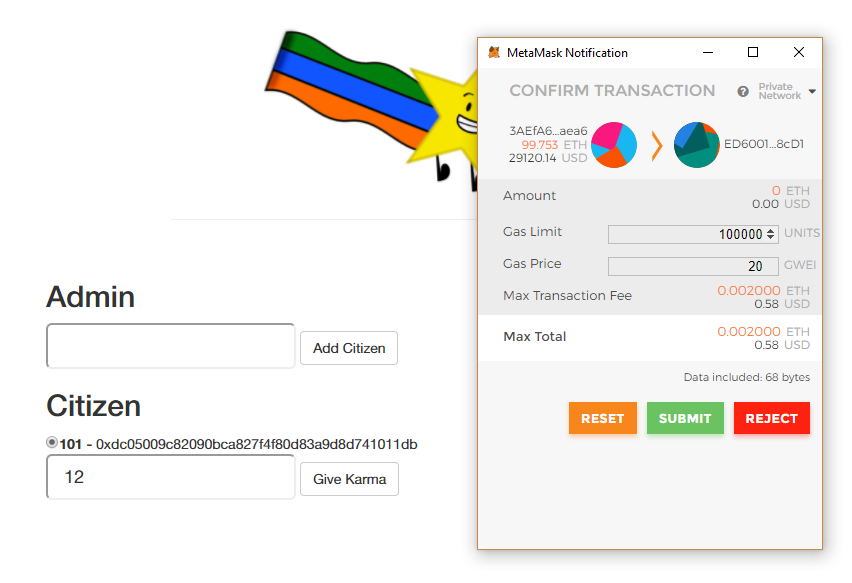
Tech-wise, all the awarding, transfer and spending of karma is done using an Ethereum smart contract. As it’s on the blockchain, all of this is completely transparent. The team used Ethereum’s testrpc tool to run a local blockchain simulation and wrote a Truffle app that allowed citizens to be created and the ability for karma to be transferred among them.
Thanks!
It was incredible to see so much enthusiasm and interest around the theme, and we were super impressed with the hacks, especially given the short amount of time! We had some great feedback (including one mention of it being ‘the best Meetup I’ve ever been to’!) and we’re already looking forward to the next one.
A final thanks to all those who came and thank you to Invest Bristol and Bath for sponsoring the event.
You can find all the photos of the hack on our Meetup page, where you can also join us to find out about our upcoming events.
